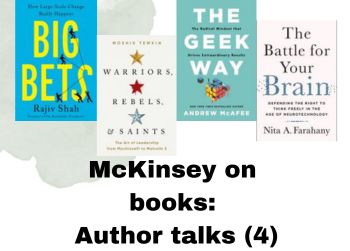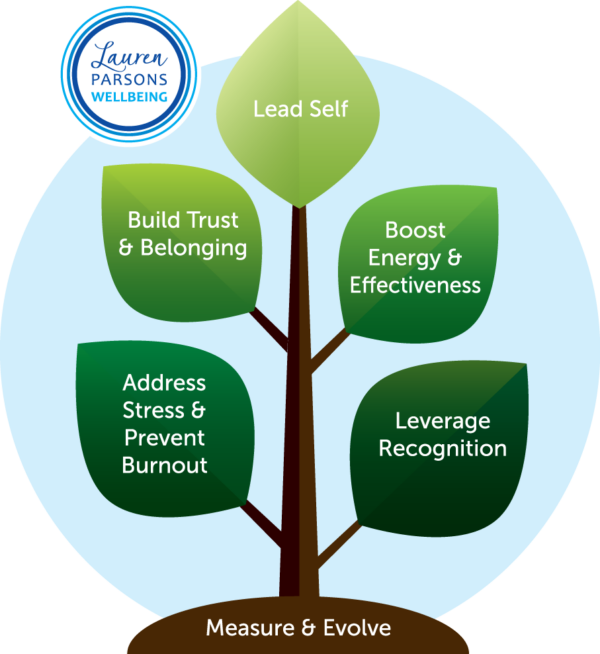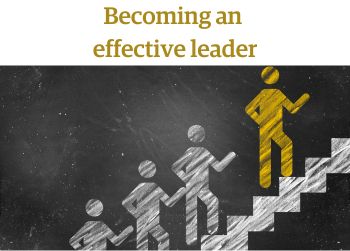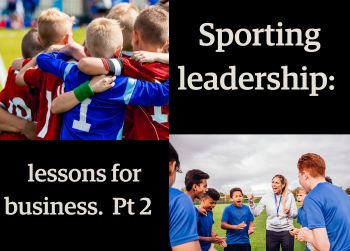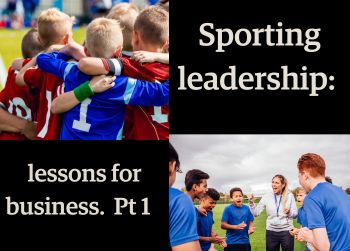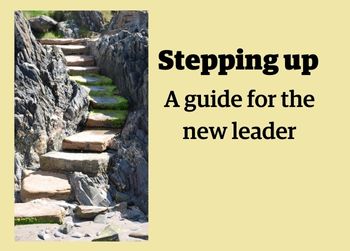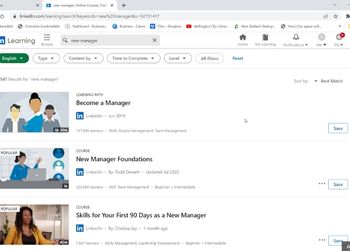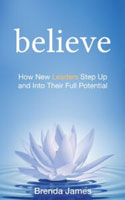“Who’s really running the show? Four ways to ensure your technology is working for you as a leader, and not vice-versa. This guest blog has kindly been written for Wellington City Libraries by James N. Donald and Craig S. Hassed, authors of The Clear Leader: how to lead well in a hyper-connected world.
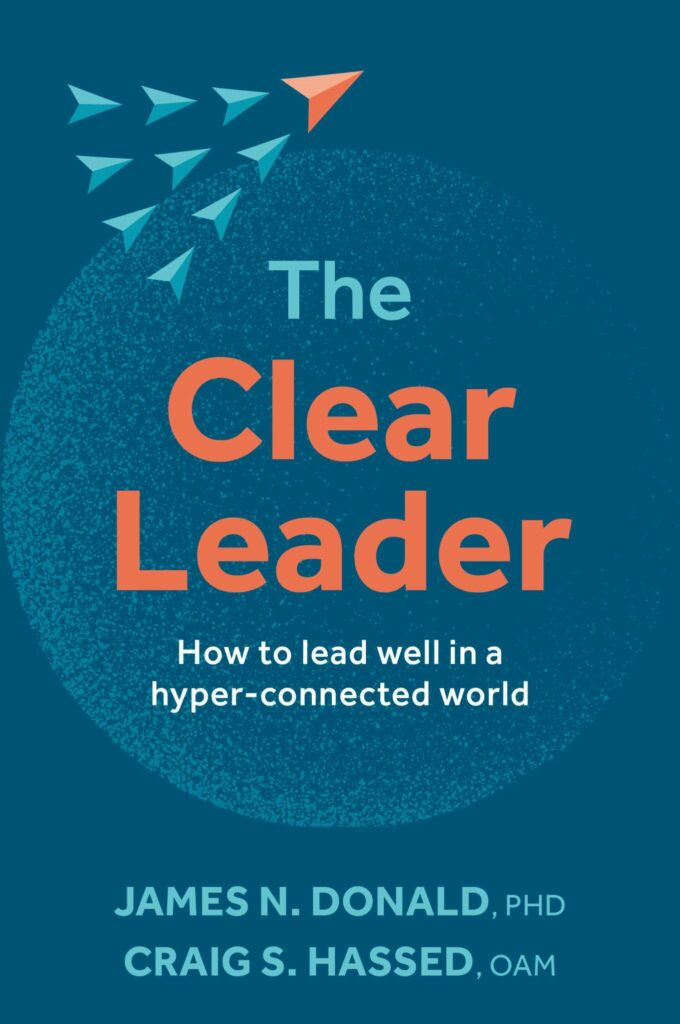
In almost every industry, element of government, or community organisation, the unexpected happens on a fairly regular basis. Managers need to be very good at planning, but as the old military adage goes, “no plan survives contact with the enemy”. Unexpected changes in the economy, new market entrants, the departure of key people in a team, or any other unexpected change, can render our current plan redundant.
When these un-planned events happen, the question is how do we respond? Arguably, at the centre of our response is the quality of our awareness of the situation we are in. That is, the capacity to pause, and see what is actually happening in the situation, including for others with a stake in the outcomes. For leaders, we call this capacity executive awareness.
Although most people agree that executive awareness is a crucial skill, managers we work with seem often less clear on how to develop in – and, crucially, how to preserve it. One force that has the potential to greatly undermine executive awareness is the way we use technology.
Technology has, of course, profoundly transformed the possibilities for innovation and collaboration but for leaders, there is also a flip side. The way our technology is designed and deployed, can undermine our capacity to lead well. Here, we explore a few of these impacts, and then suggest some strategies for dealing with them.

Wired to react
Perhaps at the root of this issue is that most jobs include an ever-growing range of communications media beyond direct, face-to-face connection, such as internal messaging apps, virtual announcement boards, social media, and the flood of email. As leaders, it can feel as if we need to stay across this ever-growing array of channels with hundreds of people, all desperate to be heard at the same time!
The neuroscience suggests that this flood of information has important impacts on cognitive functioning – and by extension, our capacity for executive attention — through the innate human tendency for aversion and desire. First, it can activate the threat centres in the brain, because we’re looking out for potential threats (i.e., problems that urgently need our attention) when we’re scanning through, say, email. This chronic stress-activation can have long-term impacts on our mood, wellbeing, and executive functioning.
Second, our communication channels simultaneously activate reward centres in the brain, where we’re anticipating some good news among the bulk of un-rewarding or even de-motivating calls on our attention. When we receive some good news (e.g., winning a project, receiving new funding, etc), we receive a dopamine hit. But we do not know when we’ll receive good news so we keep checking to find out.
Third, the way our communications channels are structured, we’re constantly switching from one issue or channel to another, in rapid succession. Research has found that human attention spans online have shrunk from about 2.5 minutes per work activity in the year 2000, to around 1.5 minutes in 2015, down to an average of 47 seconds in 2020. This constant attention switching depletes our cognitive resources.
All of this can easily create a state of chronic hyper-activity, where we’re working in a highly reactive way—reinforced by the neurological threats and rewards our brains experience along the way. But of course, the flip side of these rewards is an underlying anxiety about missing out or staying “on top” of it all.
Technology can put these neuro-signals on overdrive meaning we’re highly activated, much of the time. This way of working is very depleting. And it means that when we’re required to be at our best in a moment of crisis or challenge, we can’t be.

Who’s the boss around here?
One way that we like to think about this is that our technology makes an excellent servant, but a tyrannical master. Used well, our connectivity means we can work in highly flexible ways, across different time-zones and work-modes, and collaborate in ways that maximise information sharing. But when not used well, this way of working can be very damaging. New research is starting to systematically document some of the so-called “dark sides” of the digital workplace.
For leaders, executive awareness is fundamental to success, so how can we ensure that technology remains a helpful servant, rather than a tyrant? How can we ensure that we are not the other way around?
We now suggest four strategies for leaders using technology well: four “Ps”. Each of these “Ps” relates to a core leadership capability that can be undermined by not using technology well. In our book, The Clear Leader, we unpack each of these in much more depth, but here, we offer some suggestions you may like to experiment with.
• Purpose: Generating and sustaining a clear sense of “why we exist” is arguably at the very heart of leadership. Yet these deeper questions can easily be consumed by the flood of surface-level activity. One way of working with purpose is to schedule regular “purpose breaks”: chunks of time so that you and your team are connecting in meaningful ways, face-to-face. Putting this dedicated “white space” into your schedule, away from the stream of surface-level activity and distraction, helps yourself and others to clarify your goals, intent and purpose. Dedicate this time to exploring (or refreshing) your values, principles for working together, and how these elements support (or not) the priorities you have as a group. Ensure that devices are not interfering with this crucial time for connection and reflection. Find a sequencing and duration for these “purpose breaks” that works for you and your team. And then ensure that you, as a leader, prioritise them.
• Priorities: Clearly, a key challenge for leaders is making good decisions, and responding well in key moments. When under time pressure, stress, or in situations that are emotionally charged, it can be difficult to prioritise well. We can easily end up on automatic pilot, reacting impulsively. What such situations call for, instead, is executive awareness: the capacity to press pause, step back from the heat of the moment, settle yourself, then consider what might be a helpful response. Skills in mindfulness have much to offer here. Like a book, punctuate your day with commas (short pauses) and a couple of full stops (longer pauses). Shift the attention from the problem itself, and connect with the body and breathing for a few moments. Take time to connect with the present moment without dwelling on the issue itself – then focus. Many leaders we work with tell us that this mental break can transform the way we then approach the problem—often removing the idea that it is a “problem” altogether!
• People: With so much technology getting between leaders and team members, a key challenge is finding ways of connecting more directly. Ultimately, what people crave is personal, authentic connection. We are social creatures. As a leader, you want to find ways to create these moments of authentic, direct connection. Excellent leaders can turn up in meetings or project teams, and listen and engage with whatever problem the team is working on. Making a habit of getting out of the comfort of your office or boardroom is critical. Mindfulness can, again, be hugely valuable here. As we know, there is no “right” leadership personality. The key is authenticity, rather than personality. Authentic connection, taking interest in others, and being comfortable within yourself are keys to building connection. Whether it’s via regular town halls, social events, or meetings, find ways to directly connect with your people — and ideally, face-to-face because its far more direct. But even online, the same principles apply. The more you give of yourself, the greater your authenticity, the better you will engage your people.

• Personal: The mounting research evidence shows that where the digital workplace impacts us most is by interfering with our personal lives—bring work stress onto the kitchen table. While nice long holidays are great, the key to personal health is creating habits for daily recovery. If we focus on recovering daily, this provides an excellent foundation for sustained high performance. To recover well we need clear, achievable habits around engaging in health-promoting activities offline. Examples include not checking emails after a reasonable set time, and sticking to that (e.g., adding an out of office message to reinforce your commitment to others). Interestingly, studies have shown that around half of our mobile device disruptions are self-initiated, rather than as alerts coming to us from our device. Another big thing here is being intentional about what your do outside of work, and why you do it. For example, “I value picking up my kids from school, and spending time with them in the afternoons, and while I am, I am not checking my device”. The gold standard here, in terms of our wellbeing, is to compartmentalise our life, so we are giving our full attention to whatever task we’re engaged in – be it exercising, caregiving, cooking, driving, etc – and not falling into the trap of habitual work-checking. This creates a sense of wholeness and we recharge well.
Together, these strategies will support us leading well, and help ensure that our technology is working for us, and not against us, as we lead our teams through the opportunities and inevitable challenges we face.
About the authors:
James N. Donald, PhD is passionate about cultivating purposeful, self-aware, and skilful leadership within teams and organisations. Since 2007, James has worked with leaders in numerous private and public sector organisations. He has a PhD in psychology, is a Senior Lecturer at the University of Sydney Business School, and regularly appears in print, radio and TV media, discussing issues of workplace wellbeing and leadership. James is also an active researcher in positive psychology and leadership, regularly publishing his research in the world’s leading research journals.
Craig S. Hassed, OAM has worked within the Faculty of Medicine at Monash University since 1989, as well as teaching into other faculties, and coordinating mindfulness programs across Monash. In 2021, he became the founding Director of Education at the Monash Centre for Consciousness and Contemplative Studies (M3CS). Craig has authored 120 papers in peer-reviewed journals, published 14 books and 17 book chapters. He is regularly invited to speak in Australia and overseas in health, educational, government and corporate contexts. Craig was the founding president and patron of Meditation Australia and a regular media commentator. He is co-author of the two top-ranked online mindfulness courses in the world, and in 2019 received the medal of the Order of Australia for services to medicine.
If you would like further information please contact the Prosearch team at the library. We can help you find information across a range of perspectives and resources. All enquiries are treated in confidence.



